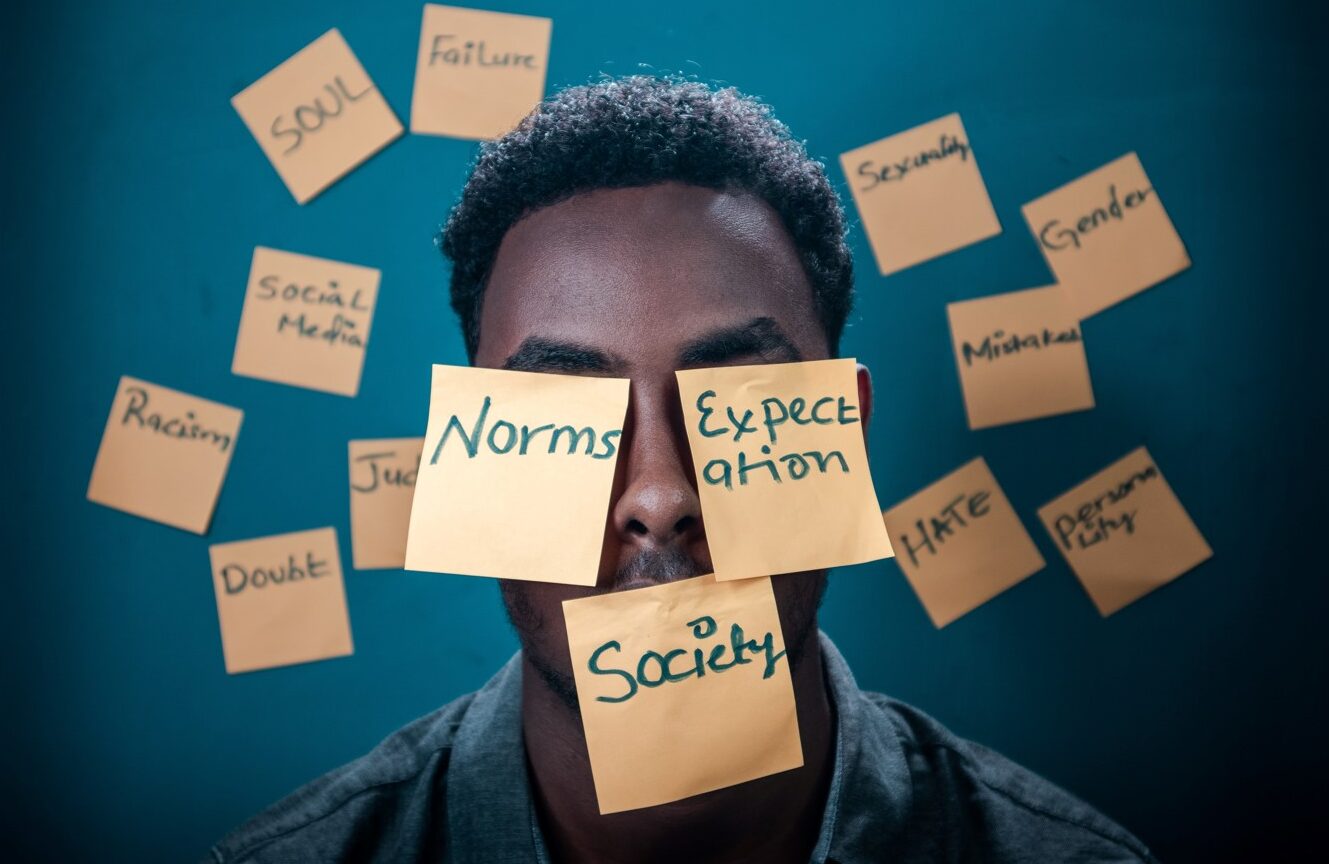In a society that highly prioritizes the opinions of others and shames those who stand out, it can be very easy to fall in the trap of peer pressure. Peer pressure has commonly been understood as a phenomenon that is only experienced by malleable teenagers. Over time it has become limited to teenagers that are prone to being swayed into doing drugs, bullying, and shoplifting. Although this falls under peer pressure, it’s not the entirety of it.
Peer pressure mainly includes engaging in specific actions like the ones mentioned above, but it doesn’t stop there, because it also often comes with peer conformity. According to the Cambridge Dictionary, peer pressure is the “the pressure that you feel to behave in a certain way because your friends or people in your group expect it.” On the other hand, peer conformity is a social influence that leads to a change, not just in behavior, but in overall attitude and beliefs in order to match that of others.
WHY DO PEOPLE CONFORM?
Humans were created with a need for belonging, and it is in our nature to long for acceptance. This need presents itself in notions like peer pressure and peer conformity, because people alter their behavior out of a need for affiliation. Nobody wants to be shunned by society, and so it’s much more convenient to go with the current than go against it.
A few signs of conforming can be:
- Inheriting or adopting other people’s beliefs as your own without questioning them.
- Finding it difficult to express beliefs around others, If they aren’t aligned with their beliefs, out of a fear of being ostracized.
- Consuming fast fashion trends, and judging those who don’t.
- Making plans that you don’t necessarily want to be a part of, out of a fear of missing out.
- Feeling like you don’t know who you are outside of the people around you.
Peer pressure is dangerous because it erases a person’s individuality. It stunts their growth, dims their creativity, and blocks their ability to reach their full potential.
HOW CAN I OVERCOME IT?
1- Ask yourself, how much of my beliefs are really my own?
To know what you really stand for, you must become aware of the areas in your life that are impacted by peer pressure. It can be scary to confront ourselves with the hard truth, but this is how growth comes. Go on a journey of self-discovery, and think about what your core values are.
2- Become firm in your identity and create boundaries.
Once you’ve discovered who you are, protect it. It can be difficult to hold your ground, but it’s important to say no to the things that aren’t aligned with the person you’ve become. Determine what boundary you need to set, and with who, so you can avoid doing things you’d rather not do.
3- Don’t be afraid to stray from the herd.
When you start saying no to the things that don’t serve you anymore, you can expect some form of resistance. Train yourself to be comfortable with not being liked or understood by everyone, because it’s quite literally impossible. Don’t feel discouraged by what people will have to say about you choosing yourself, because it will never compare to the joy that will come with being your authentic self.
If you can’t beat them, join them!
Peer pressure has a negative connotation, but it doesn’t always have to be a negative thing. There are two types of conformity: positive and negative. The need to fit in and feel accepted is present in both types, but the outcome can be completely different. In order for a person to feel like they belong, they will imitate behavior no matter what it looks like. What if the behavior that was being imitated was uplifting, healthy, and beneficial? What if the most influential person in a friend group decided to put an end to gossip? Their friend group will have more fruitful conversations. What if the popular boy at school treated his female classmates with respect? His male counterparts will follow and a culture of respecting women can be created at school. Peer pressure can still be all around us, but we can always shift the narrative.
If peer pressure has heavily impacted your decisions in the past, it’s never too late to reflect and take active steps to find your own identity, and create boundaries that guard you intellectually, emotionally, physically and spiritually. It’s never too late to build a reality for yourself where you don’t feel obligated to hide parts of yourself to feel included.
Reflection Questions:
- What role does peer pressure play in your beliefs/ habits/decision making?
- What is one thing you wanted to do but couldn’t out of a fear of what people might think of you?
- What boundaries can you start drawing to protect yourself from peer pressure?
- How can you start positively impacting your community? What changes do you want to see?





